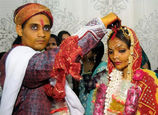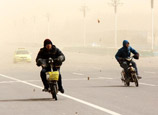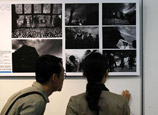
Her credits include the popular game show "Intellectual Big Surf," the city's first entertainment TV show that debuted in 1994, and the celebrity dancing reality show "Let's Shake It," which debuted in 2006.
TV audiences today have much shorter attention spans because they have many more choices and change channels quickly if they are not interested.
"A common challenge for domestic TV producers is how to hook an audience in the first five minutes," Chen says. "They naturally feel pressured and begin to resort to reality competition shows that feature a big, shining stage, more spectacular visual effects and magically turn ordinary people into stars overnight."
Chinese entertainment shows have shifted from merely imitating successful foreign shows in the 1990s to the current period of copyright import and localization, she says.
Chinese television needs more than reality shows, since originality and diversity are important for a healthy industry, Chen says.
"Big-budget reality competition series is like a sumptuous meal, but if it is served again and again, people may feel bored and apathetic," she adds. "Small-budget entertainment shows with good creative thinking can also achieve a big success."
She cites the popularity of the light-hearted Dragon TV program "Talk About It," which targets the post-1980s generation.
In each episode, an energetic on-site DJ performance is combined with the young talk show nova Wang Zijian's witty comments on current affairs, cultural events and fashion trends. It's expected to become a long-running show for young people who learn about the world from novel perspectives.
Professor Wu Gang, a TV expert from East China Normal University, says that trying new things is always risky, but being afraid of risk can lead to copycat programs and lack of originality.
"That's why plenty of technical clones stem from China," he says. "Entertainment TV is a good platform for people to use their imagination. It's not a good sign that it is dominated by a single genre (talent), and this may cause aesthetic fatigue."
Even purchasing a successful foreign format cannot guarantee success. Domestic producers still have a lot to learn from foreign shows.
In the West, almost all the successful TV formats have a professional R&D design team working on every detail, such as scenes, positioning, lighting and production, he says. "The judges are very professional. What attracts the audience are the real talent of contestants and judge's astute comments and expertise."
? "So You Think You Can Dance"
Sundays, 9pm, Dragon TV
? "Master Chef"
Wednesdays and Thursdays, 10pm, Dragon TV
? "I Am A Singer"
Fridays 10pm, Hunan Satellite TV
? "Dancing My Life"
From April 14, 8pm, CCTV-1



















![]()
